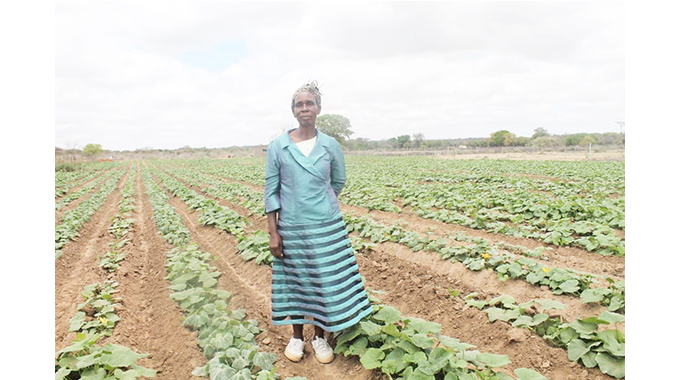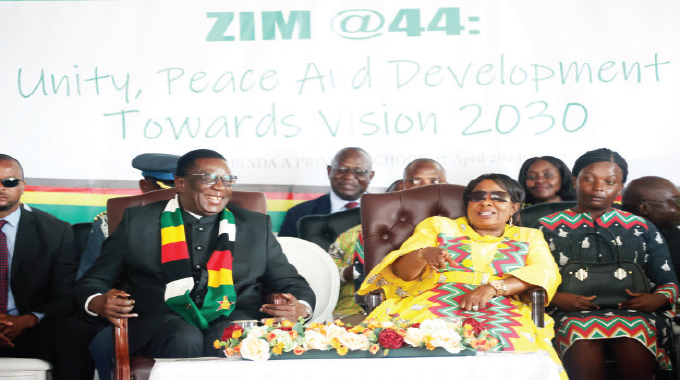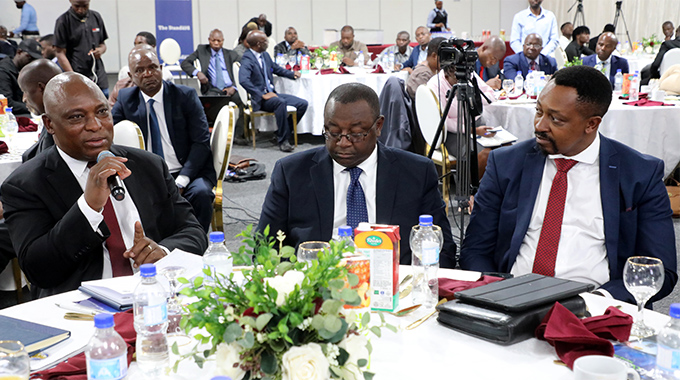Villagers benefit from solar-powered garden

Sukulwenkosi Dube-Matutu, Gwanda Correspondent
PEOPLE in Sengezane Village in Ward 14 in Gwanda District are benefiting from a one-hectare solar-powered garden whose building was sponsored by Hand in Hand Zimbabwe.
Under the project the villagers also have a nursery where they nurture tree seedlings and sell them as well as an orchard. They also grow fodder.
The project seeks to promote agro forestry, a concept where farmers are urged to grow both trees and crops in order to maximise productivity and ensure nutritional security.
Chairperson of the project Ms Celiwe Moyo said since they started the project in April 2019, they have managed to realise significant profits that have enabled them to sustain their families.
She said their project Phakamani Garden had 47 beneficiaries.
“We have a variety of crops which include tomatoes, vegetables, butternut, onions, carrots among others. With this garden we are now at a capacity to sell our produce for a living and to also ensure that our families have nutritious food.
“The project is now self-sustainable as we are able to maintain our garden using the money we make after selling our products.

Ms Celiwe Moyo
“We also have an orchard and a nursery in the garden where we have variety of fruit trees which include guavas, lemons, paw paws, grapes and mangoes.
“We grow our seedlings at the nursery and when they have matured, we sell some while we plant the rest in our orchard. We have made significant income from selling our seedlings.
“Our paw paws are almost ripe and we look forward to selling some while we will consume some with our families.
“We also grow banner grass which is fodder that we feed our cattle,” she said.
Ms Moyo said the garden had a solar-powered submissive pump which was drawing water from Tuli River to Jojo tanks.
She said they watered their crops using water which they collected from taps that were installed in the garden.
She said they always desired to have a community garden but they did not have the means. Ms Moyo said Hand in Hand Zimbabwe assisted them with a perimeter fence and material to install the water system as well as ablution facilities.
She said they also received training on how to nurture their seedlings and plant trees from the Forestry Commission while Agritex officers trained them on proper farming methods.
Mrs Loreen Mpondo, a member of the project, said she sold some of her produce in Filabusi and Manama as the local market was sometimes flooded.
“We were urged to practise agro forestry in our project where we grow both trees and crops in our garden.
“This helps to increase productivity and maximise use of the land.
“This is an environmentally friendly way of farming as trees will help control soil erosion, act as a windbreak as well as improve soil nutrients. Most importantly we now have access to a balanced diet as we have vegetables and fruits in our garden.
“We use manure and not fertiliser for our crops in order to get an improved taste. We were also trained on proper farming methods such as crop rotation and how to deal with pests.
“This project doesn’t only address our financial challenges but nutritional challenges as well.
“I have three grandchildren that I’m looking after and I’m able to feed them, clothe them and pay their school fees using the money I get after selling my produce,” she said.
Hand in Hand Zimbabwe area manager for Gwanda, Ms Unami Dube said the Phakamani Garden project was implemented under the Green Enterprise initiative which seeks to address climate change challenges.
She said it sought to ensure that communities are resistant to climate shocks and become socio and economically stable.
She said the organisation had created five gardens in four wards in Gwanda District under the Green Enterprise initiative.
Ms Dube said they had so far implemented agro-based projects which comprised establishment of gardens, livestock production and non-timber projects such as manufacturing jam.
She said her organisation had partnered with various departments to train project beneficiaries on community-based natural resource management in order to ensure that they run their projects in an environmentally sustainable manner.
Ms Dube said they sought to ensure communities engaged in climate smart activities that can give them an income.











Comments